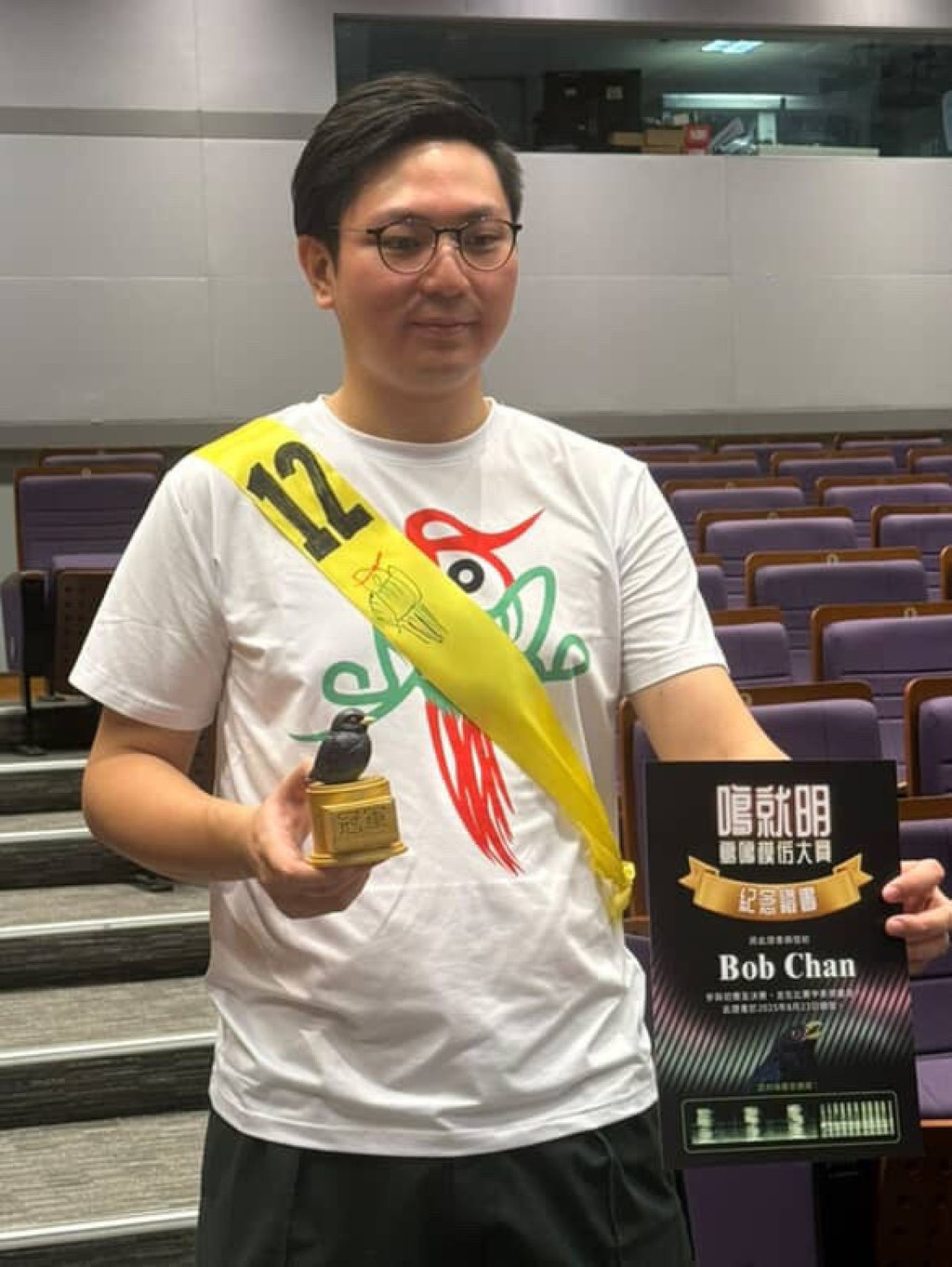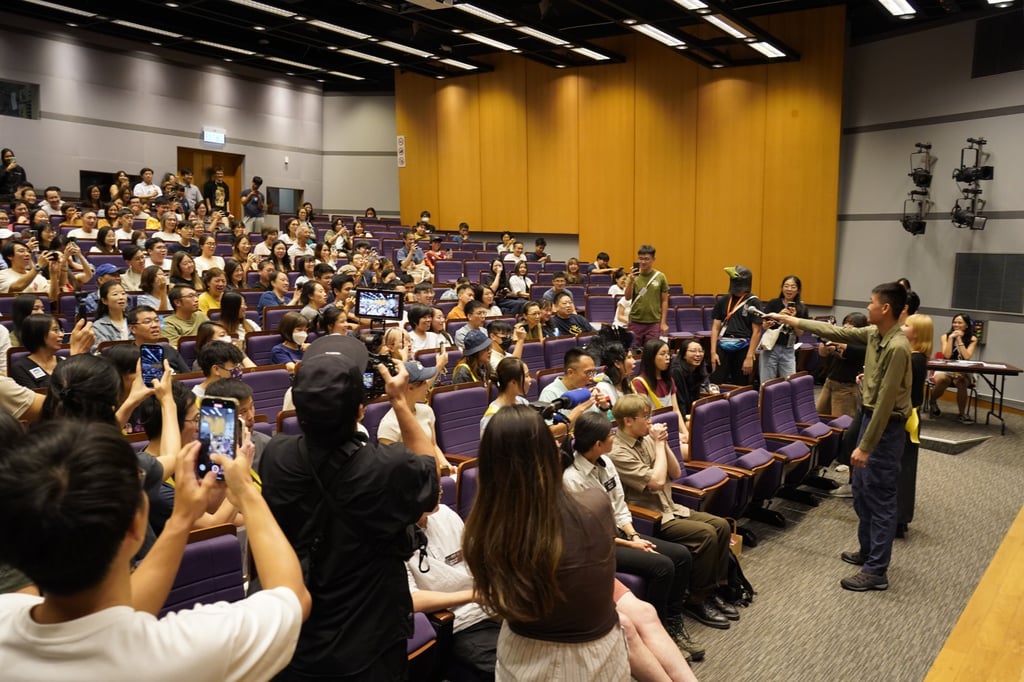There were no birds onstage at the University of Hong Kong last weekend, but the sounds – trills, hoots, warbles – suggested otherwise.
In the city’s first-ever bird call competition, participants took turns mimicking the songs of local species, from the chestnut-winged cuckoo to the Asian barred owlet. Some wore feathered costumes, others brought props. Many sounded, to the untrained ear, uncannily real.
Hong Kong is home to more than 580 bird species – nearly a third of the total bird species recorded in China. Yet that evening at HKU, the only creatures making noise were human. Close your eyes, and you might have sworn the city’s wetlands had somehow migrated indoors.
The competition, hosted by the Hong Kong Bird Watching Society, received 97 recordings of the Asian koel, out of which 20 were shortlisted, says Rico Chan, a co-organiser of the contest. The qualifying round challenged contestants to replicate the calls and songs of four designated birds, plus one of their choice.

Bob Chan, who won the competition, says he spent eight hours practising. “At first, I wasn’t very confident because I wasn’t familiar with the four birds’ sounds,” he says. “However, I’ve always loved mimicking sounds, so I put my skills to work merging human voice with bird call.”
For the final round, Chan picked the Eurasian tree sparrow, one of the city’s most common – and cutest – birds, he says. Its continuous chirp required careful study and practice, but his dedication paid off, earning him the title. “I am happy that people found it funny and incredible,” he says. “I am also surprised because I thought it might be considered a boring competition, yet people really enjoyed it.”
The judging panel included members of the Hong Kong Handflute Association, which also performed during the event. Founded in 2021, the association is, according to co-founder Ivan Yu Shun-hang, “the only institution in the world that promotes handflute culture and provides systematic teaching”. The group organises workshops, lectures, courses and performances, helping enthusiasts produce music with their bare hands – no instrument required.

Yu learned the art from his parents, like many members, though they had to figure out pitch changes and melodies on their own, a challenge far greater than simply copying sounds. “There’s definitely a growing community of handfluters,” he says. “Hong Kong might even have one of the highest numbers of practitioners worldwide.”


